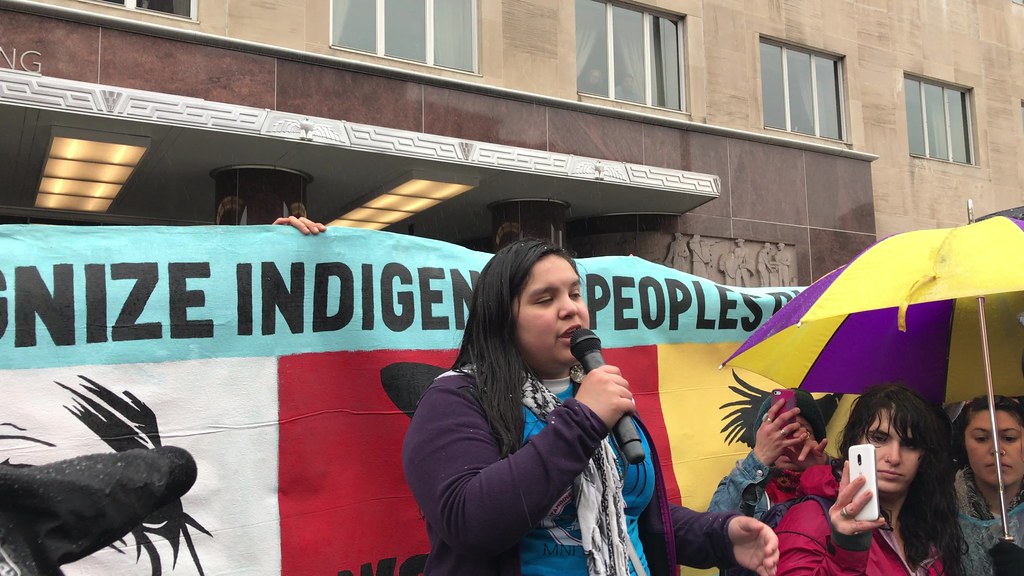Native Nations Rise

Judge James Boasberg, however, did not order a halt to operations despite requests from the tribes. A follow-up decision in November reconfirmed the "deficiencies" in the administration's handling of the controversial project. Again, Boasberg declined to stop oil from flowing. Both tribes retain water, hunting, fishing and other rights at Lake Oahe under treaties signed with the United States. The Army Corps did not fully address those issues when it approved the final crossing there, Boasberg determined. In its new filing, the Standing Rock Sioux Tribe acknowledges that granting its request for more information and consultation could delay the April deadline for the new study. But attorneys say a delay is necessary in order to ensure the pipeline won't harm treaty territory. "That consultation will necessarily include discussion of the protection of culturally significant sites alongside the river that could be affected by an oil spill," the filing stated.
Join the Conversation
Related Stories
Republican
investigation links Russian trolls to #NoDAPL movement (March 1, 2018)Sylvia Chi: Indigenous activists lead energy divestment movement (February 19, 2018)
Cheyenne River Sioux Tribe demands consultation on DAPL study (February 9, 2018)
Red Fawn Fallis stays jailed for #NoDAPL gun shooting incident (February 6, 2018)
Woman injured in #NoDAPL clash sues government for evidence (February 6, 2018)
Red Fawn Fallis enters guilty plea for #NoDAPL gun shooting incident (January 23, 2018)
Native Sun News Today: 'Water Protectors' film heralds unsung Lakota heroes (January 15, 2018)
Native Sun News Today: Cheyenne River Sioux Tribe raises funds for water (January 10, 2018)
Albert Bender: The original genocide continues with the Dakota Access Pipeline (November 16, 2017)
Dakota Access Pipeline opponents aim to hold law enforcement accountable for brutal tactics (November 14, 2017)
Dakota Access sued for damage to farmland as tribes seek assurances for water (November 3, 2017)
University agrees to Dakota Access lecture after Mark Trahant complained (October 30, 2017)
Native American psychologists slam police tactics a year after Standing Rock (October 30, 2017)
Mark Trahant quits post after university stifles discussion on Dakota Access Pipeline (October 27, 2017)
Kelly Hayes: New documentary remembers Standing Rock in beauty and catastrophe (October 24, 2017)
YES! Magazine: Native women pressure banks to divest from big energy projects (October 23, 2017)
Native Sun News Today: Tribes decry court ruling favoring Dakota Access Pipeline (October 20, 2017)
Judge deals tribes major setback with decision in Dakota Access Pipeline case (October 11, 2017)
YES! Magazine: Water protectors return to Standing Rock for healing ceremony (October 2, 2017)
North Dakota accepts $15M from wealthy backers of Dakota Access Pipeline (September 29, 2017)

